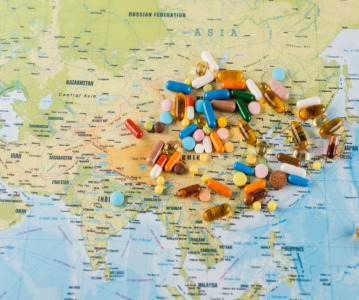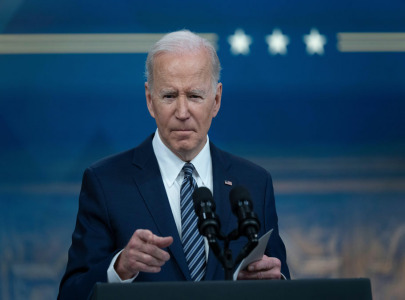New WHO health emergency guidelines expect full transparency from Big Pharma
.png)
The WHO are proposing a new set of pandemic guidelines to set out how future global health crises should be handled.
As part of this set of rules, participating pharma companies may have to release the figures, terms and other specifics of deals made regarding products they have developed to fight any future emergencies.
The draft of the WHO accord on this matter is being reviewed and settled between the 194 UN health agency member countries.
The current draft calls for there to be greater transparency in how public funding for the development of vaccines and other medicines is used. It also includes guidelines to ensure the equitable distribution of any manufactured products around the world.
The accord is affectionately known as the pandemic treaty, and hopes to mitigate delays and bureaucratic dilemmas in the face of a new global health emergency, taking what we have learnt from the COVID-19 pandemic and refine our response. With a main aim to ensure less developed and poorer countries are not left to fend for themselves.
In the COVID-19 pandemic, the majority of contracts between pharmaceutical companies and governments were kept private, meaning terms of their agreement and figures were confidential leaving little accountability.
The WHO stated that the new accord, which is still in the beginning stages of formation, would be open to the public and stakeholders for comment before being finalised, leading to amore agreeable way of coordinating efforts in the future.
"The process is open, transparent, and with the input from other stakeholders, including any interested stakeholders and public, able to submit comments at public consultations."
Currently the agreement does not state any specific consequences if countries and companies do not follow the proposed guidelines as the UN agency cannot necessitate that the guidelines are followed to the letter.
The UN agency’s proposed agreement may leave some Big Pharma companies somewhat disgruntled, as they were the ones to step in and develop the vaccines and treatments that were invaluable in curbing the loss of life from the COVID-19 pandemic, with Pfizer and BioNTech, Moderna and AstraZeneca mobilising to launch vaccines less than a year after the start of the pandemic in China in 2019.
Thomas Cueni, Director General for the International Federation of Pharmaceutical Manufacturers and Associations (IFPMA), stated that it was an “important milestone” but,
"If the draft were implemented as written today it would most likely undermine rather than facilitate our collective ability to rapidly develop and scale up counter measures and ensure its equitable access.”
The guidelines not only set out how best to handle a global health emergency, but also measures in how to recognise them and assess preparedness, with an aim of preventing them.
The accord will have to go through several rounds of review and meetings, the next of which will be held in December, with the finalised treaty not expected to be in place until 2024.
WHO Director-General Tedros Adhanom Ghebreyesus has described the treaty as a once-in-a-generation opportunity to strengthen global health rules by.
Related News
-
News Pharmaceutical industry supports COP28 health stance in joint statement
As COP28 takes place over this week in Dubai, UAE, several bodies in the pharmaceutical and health industries have come together to announce support of key movements in sustainability in the sector, and to recognise sustainability as a health issue.&nb... -
News Biden backs Cold-War measures to shore-up medical supply chains
In a recent strategy to combat rising inflation and the cost of living crisis, President Joe Biden has invoked a Cold War-era act to increase investment in a selection of medicines and supplies. -
News CPHI Podcast Series: What does the changing US Pharma market mean for industry and patients alike?
In this week's episode of the CPHI Podcast Series Lucy Chard, Digital Editor for CPHI Online is joined by James Manser to discuss the political and market changes in the US pharma field. -
News Which 10 drugs are open to price negotiation with Medicare in the USA?
The Centres for Medicare & Medicaid Services, under the Biden administration in the USA, has released a list of the 10 drugs that will be open to price negotiations as part of the new legislation under the Inflation Reduction Act (IRA). -
News 10 Major Drug Approvals So Far in 2023
Last year, 37 novel drugs were approved by the FDA, this was a high number for such a category, and covered many fields including oncology, demonstrating how promising further research is, and how it is only continuing to build. To date, there are alre... -
News Novartis agrees for copies to be made of cancer drug to reach poorer countries
Novartis signs agreement with MPP to have generics of it's leukemia drug made so that it can be more easily distributed to the world's poorer countries. -
News CPHI Podcast Series: outsourcing and manufacturing trends
Listen to the CPHI Podcast Series this June to hear Gil Roth of the PBOA speak with Digital Editor Lucy Chard about the biggest trends and topics to watch in pharma outsourcing and manufacturing at the minute. -
News Biden's $2 billion Biotech Boost
President Biden issues executive order to bolster U.S. biomanufacturing sector.
Position your company at the heart of the global Pharma industry with a CPHI Online membership
-
Your products and solutions visible to thousands of visitors within the largest Pharma marketplace
-
Generate high-quality, engaged leads for your business, all year round
-
Promote your business as the industry’s thought-leader by hosting your reports, brochures and videos within your profile
-
Your company’s profile boosted at all participating CPHI events
-
An easy-to-use platform with a detailed dashboard showing your leads and performance







